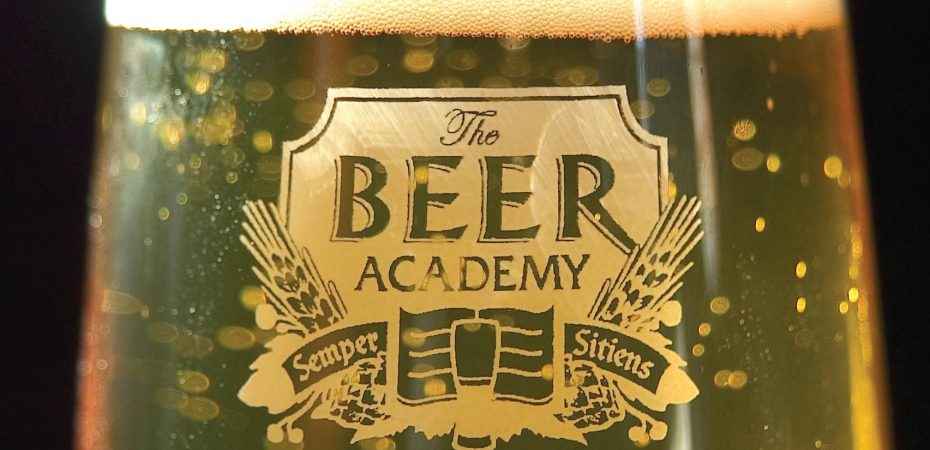Advice is appreciated when it has been passed on by someone from the land of Been There Done It.
But it’s only when they have the experience, knowledge, ability, qualifications and personality to support their message that they can buy the metaphorical T-shirt.
As a student at Newcastle University, George Philliskirk would head for the nearby Hotspur pub for a lunchtime bottle of Newcastle Brown Ale and a pie. There’s something comforting about a pie-and-pint man; it’s to do with fundamentals, grassroots and good old basics.
It’s to do with Been There and taking everything on board, slow learning curves and an acknowledgement of the world around – and 30+ years further on, George is putting the T-shirt to good use.
Following a 24-year career in bacteriology and biochemistry in Britain’s foremost brewing companies, he is now chief executive of The Beer Academy, a not for- profit initiative conceived in 2003 and formally launched in April 2004, which is designed to help people inside or outside the brewing industry to develop a greater understanding of beer. And with understanding comes appreciation and a thirst for more knowledge.
The Beer Academy doesn’t teach people how to make beer; its intention is to attract a vibrant mix of beer lovers (plus the merely curious), journalists, pub staff, brewery personnel, public relations companies, wholesalers and restaurateurs into a range of courses that will raise the profile and positive aspect of drinking and enjoying beer to the full in its 50-odd styles.
“We want to promote a better understanding of beer and educate people in its importance,” says George, who is also an external examiner at Heriot-Watt University for brewing degrees and lectures regularly in the United Kingdom and Denmark.
Beer has an image problem – unfortunately, it alliterates beautifully with ‘belly’. Lager suffers, too – it sits well in newspaper headlines with ‘lout’. Despite acres of press coverage to the contrary, it is still widely held to have a cloth-cap image and suffers badly when compared in ‘civilised’ social circles with wine’s complex aromas and flavours.
Yet, beer is infinitely more complex and versatile than wine, it has tradition, heritage, and is made from completely natural ingredients – same as wine. The Beer Academy simply wants people from 18 to 80 to know that – and there’s an accredited certificate at the end of a course to prove it.
Wine connoisseur Oz Clarke – who can swirl, sniff and spit with the world’s best – recognises beer’s importance to the nation and says he’s looking forward to attending Beer Academy sessions and meeting all those who, like him, have a love affair with beer and are eager to consummate it.
He says: “Above all, we’ll be learning about the human passion, inspiration and imagination that created the original classic brews and which is now creating a wave of thrilling ‘new classics’.
“There are more than 2,000 different beers brewed in Britain alone and goodness knows I’ve done my best to try the lot – but what do we really know about them? Isn’t it about time we added a little knowledge to the sheer pleasure of downing a decent pint?”
Initial finance for the first Beer Academy course was provided by brand-developer, Refresh UK, whose chief executive, Rupert Thompson, is also a founder of Cask Marque, the brewers’ on-trade quality initiative.
Originally – in the summer of 2003 – Rupert, along with Mark Dorber, host of the White Horse pub on London’s Parson’s Green; beer lecturers Tim O’Rourke and Roger Putman and PR expert Rupert Ponsonby, sat down (apparently over a glass of John Willy Lees Harvest Ale 2002) to thrash out the Beer Academy idea. Its agenda was to create a generic educational service for beer and to answer some fundamental questions, such as:
Article continues in Beers of the World Magazine Issue 2

